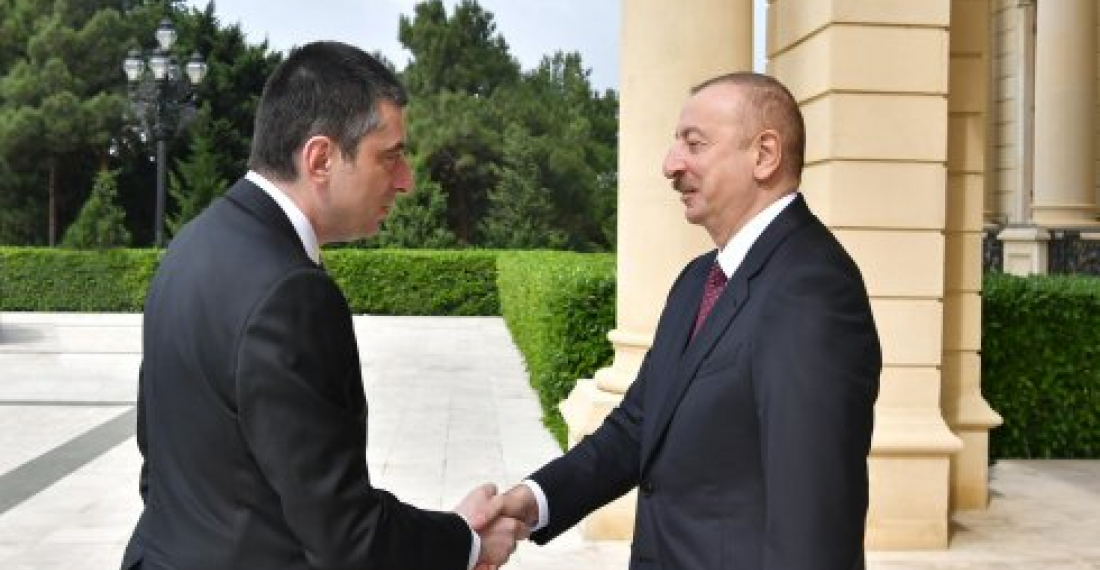Georgian prime minister Giorgi Gaharia has paid the first overseas official visit since taking office, arriving this morning in Baku for talks with Azerbaijani officials.
Gaharia met with Azerbaijani president Ilham Aliyev.
Speaking at the start of the meeting Gaharia said that the "visit will once again show to both our enemies and our friends that there are no problems between the two countries which have not been settled in a friendly and brotherly manner." Our partnership has exceeded regional boundaries and been upgraded to an international level, especially in terms of economy, transport and trade. We both support each other in international formats. We are grateful for your support for Georgia’s sovereignty and territorial integrity,” Georgian prime minister said, adding that Georgian and Azerbaijani people have developed “particularly warm and close relations” over centuries.
On his part president Aliyev said: Ï am glad that you visited Azerbaijan first. This proves that Georgia and Azerbaijan are close allies and partners. We take Georgia as the closest friend, neighbour and a partner. We are connected by history and geography, which have played important roles in developing our relations,” the president added.
This item was corrected to replace in paragraph 3 the word allies with the word enemies
source: commonspace.eu with agencies
photo: President Ilham Aliyev of Azerbaijan welcoming Georgian prime minister Giorgi gaharia at the presidential palace in Baku on 9 October 2019 (picture courtesy of the press service of the president of Azerbaijan).







